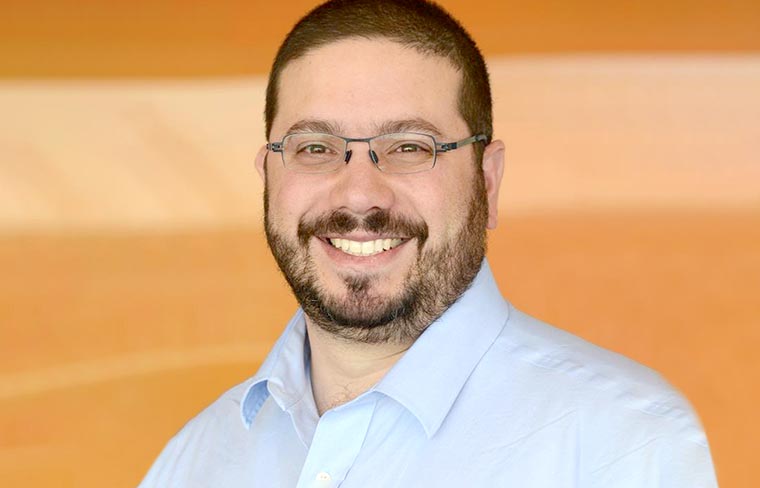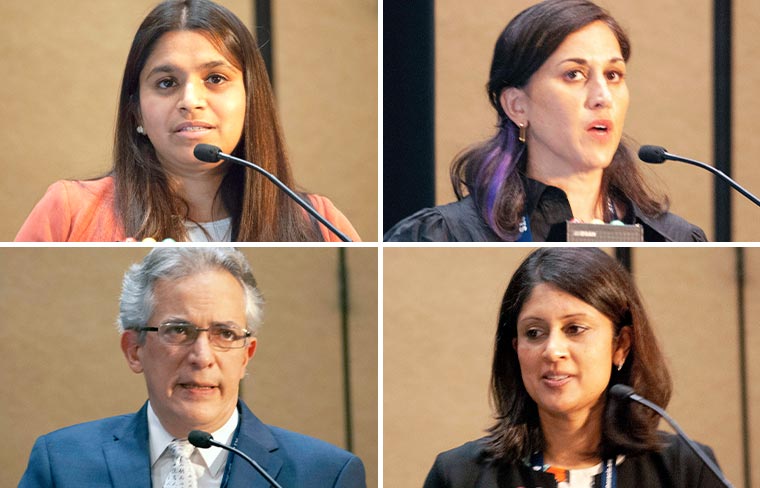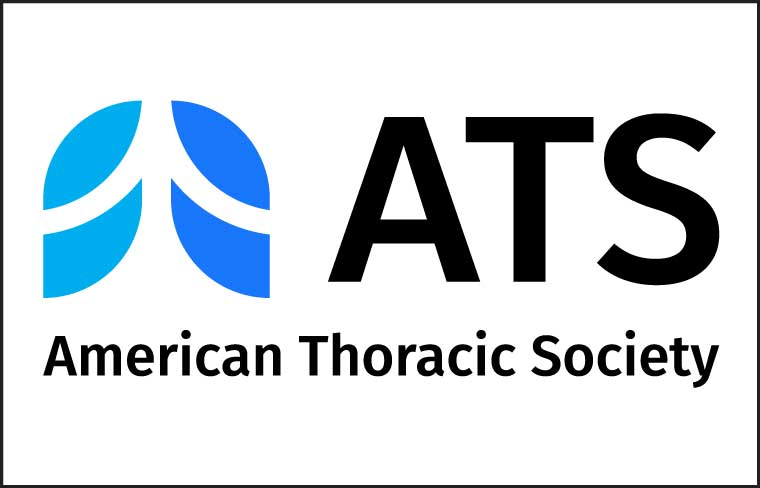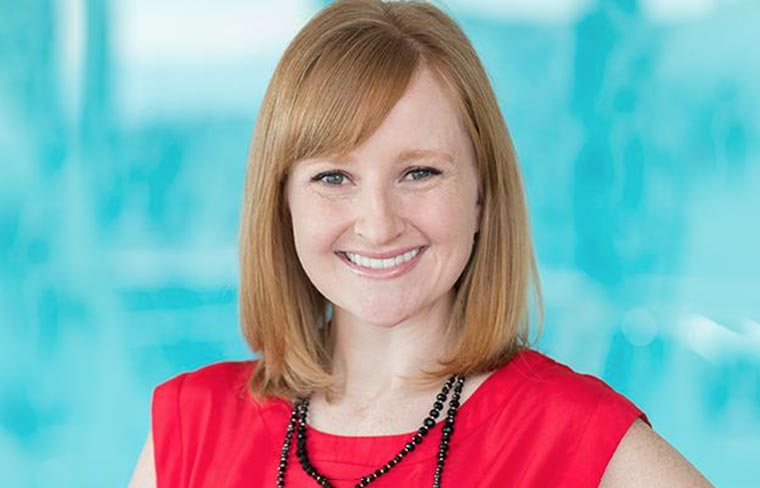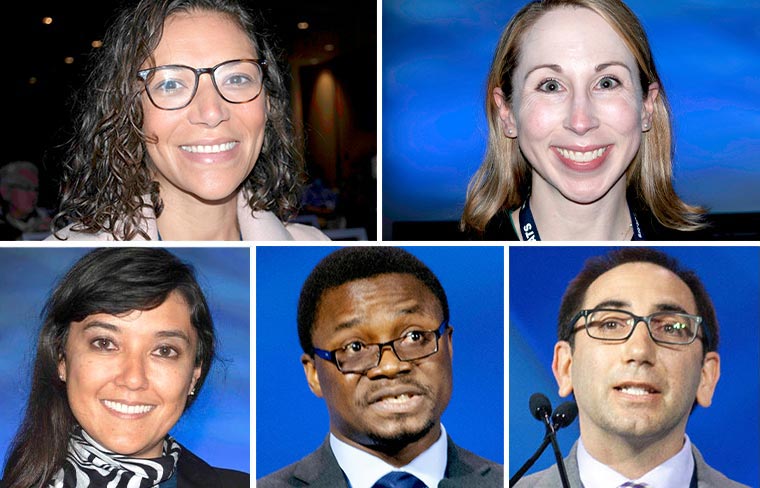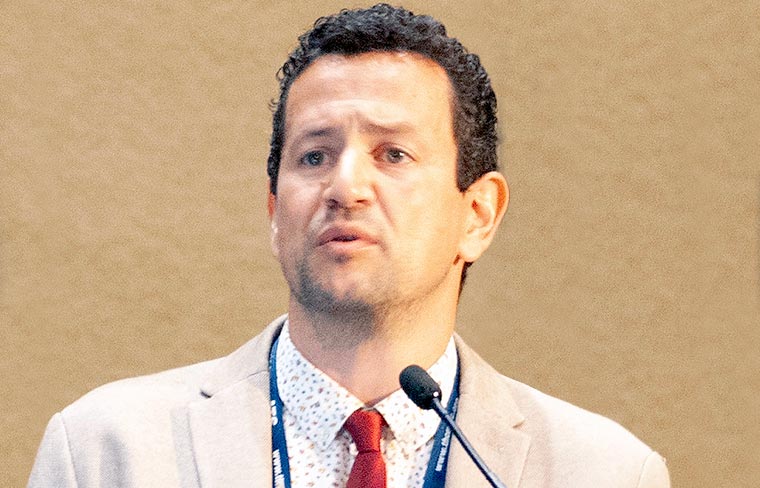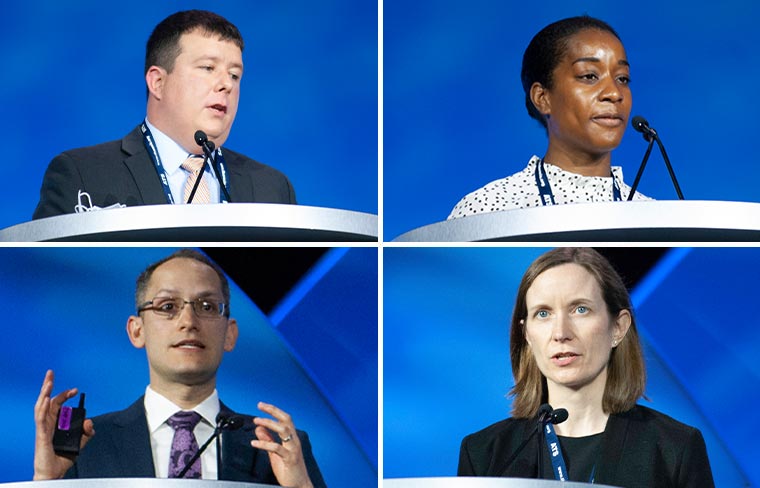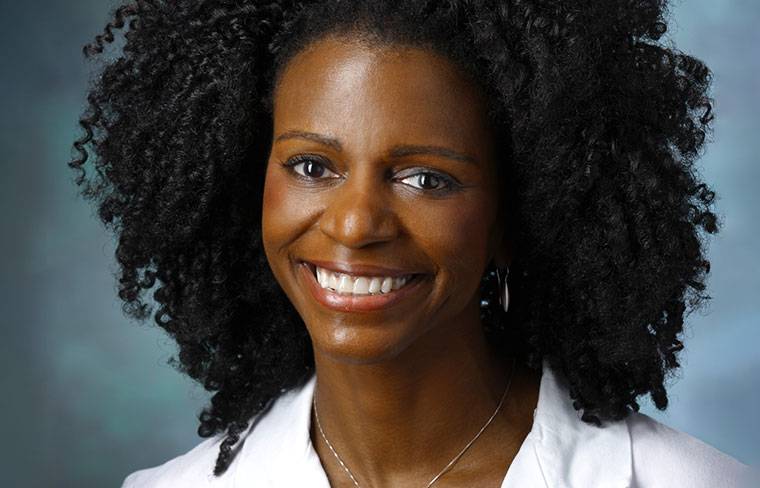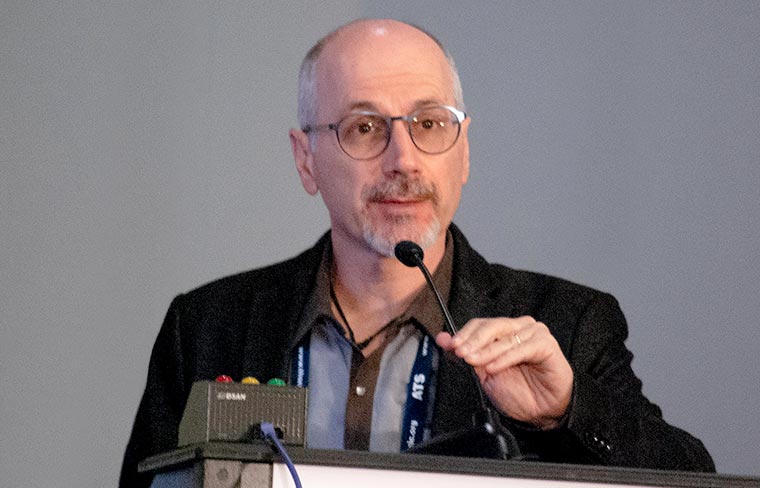-
June 24 Is Last Day to View ATS 2022: On-Demand Highlights
on
Read more: June 24 Is Last Day to View ATS 2022: On-Demand HighlightsThe virtual platform provides convenient, on-demand access to popular scientific sessions from the International Conference, including Year in Review and Core Curriculum sessions; industry presentations from leading companies in the field; and thousands of ePosters highlighting the latest discoveries in pulmonary, critical care, and sleep medicine.
-
Pediatric Core Curriculum Focuses on Lung Involvement in Neuromuscular Disease
on
Read more: Pediatric Core Curriculum Focuses on Lung Involvement in Neuromuscular DiseaseOren Kupfer, MD, opened the first of three sessions with an exploration of diagnostic strategies to identify NMDs as a prelude to managing and treating these diseases. “Respiratory disease is common in our patients with neuromuscular disease and is often the cause of death,” he said.
-
Panel Examines Career Development Challenges in Wake of COVID-19 Pandemic
on
Read more: Panel Examines Career Development Challenges in Wake of COVID-19 PandemicJamuna K. Krishnan, MD, MBA, MSc; Neeta Thakur, MD, MPH; Juan C. Celedon, MD, DrPH, ATSF; and Sushma K. Cribbs, MD, MSCR, ATSF, discussed pre-existing threats to and the collateral effects of COVID-19 on professional development for young respiratory health faculty.
-
Learn and Connect Through ATS Membership
on
Read more: Learn and Connect Through ATS MembershipMore than 16,000 health care providers and researchers around the world belong to the ATS, the preeminent respiratory society in pulmonary, critical care, and sleep medicine. Be part of the Society’s mission to accelerate global innovation in the advancement of respiratory health through multidisciplinary collaboration, education, and advocacy by becoming a member today.
-
Session Offers Patient, Clinician Perspectives on Long-Term Effects of COVID-19
on
Read more: Session Offers Patient, Clinician Perspectives on Long-Term Effects of COVID-19In addition to the physical effects of COVID-19 infection on patients, the pandemic has had a significant impact on the well-being of frontline health care workers. Experts including Heather De Keyser, MD, MSCR, discussed the implications of both for public health.
-
Pulmonary Clinical Core Sessions Focus on Interstitial and Fibrotic Lung Diseases
on
Read more: Pulmonary Clinical Core Sessions Focus on Interstitial and Fibrotic Lung DiseasesPanelists Erica Farrand, MD; Bridget Collins, MD; Leticia Kawano-Dourado, MD, PhD; Ayodeji Adegunsoye, MD, MS; and Robert W. Hallowell, MD, explained the complexities of the diagnosis and treatment of diseases including pulmonary fibrosis and granulomatous lymphocytic interstitial lung disease, as well as autoimmune rheumatic diseases with pulmonary manifestations.
-
Clinical Year in Review 1: Panelists Review the Year’s Top Papers in PVD, ILD, Lung Cancer, and Pneumonia
on
Read more: Clinical Year in Review 1: Panelists Review the Year’s Top Papers in PVD, ILD, Lung Cancer, and PneumoniaManuel Sánchez De La Torre, PhD, discussed obstructive sleep apnea phenotypes in a scientific symposium addressing the integration of endotypes, medical informatics, and multi-omics to guide more precise care of patients with sleep disorders. Presenters also discussed sex-specific factors as targets for subtyping, epigenomics, and designing new trials.
-
Critical Care Curriculum Sessions Address ICU Delirium, PICS
on
Read more: Critical Care Curriculum Sessions Address ICU Delirium, PICSTwo symposia in the Critical Care Clinical Core Curriculum focused on recognizing, avoiding, and managing the impairments that can develop after admission to an intensive care unit.
-
Experts Review History of E-Cigarettes and Mechanisms of Vaping-Associated Lung Illness
on
Read more: Experts Review History of E-Cigarettes and Mechanisms of Vaping-Associated Lung IllnessEnid R. Neptune, MD, ATSF, was part of an international panel that discussed the needed clinical, public health, and regulatory efforts to prevent future e-cigarette induced lung injury.
-
Panelists Discuss the Roles of Microbiome and Lung Microenvironment in COPD and Lung Cancer
on
Read more: Panelists Discuss the Roles of Microbiome and Lung Microenvironment in COPD and Lung CancerSeyed Javad Moghaddam, MD, presented research comparing the effects of cigarette smoke and e-cigarette vapor on the host microbiome and lung immune microenvironment.
ATS Conference News
San Francisco | May 16-21
We help the world breathe.



